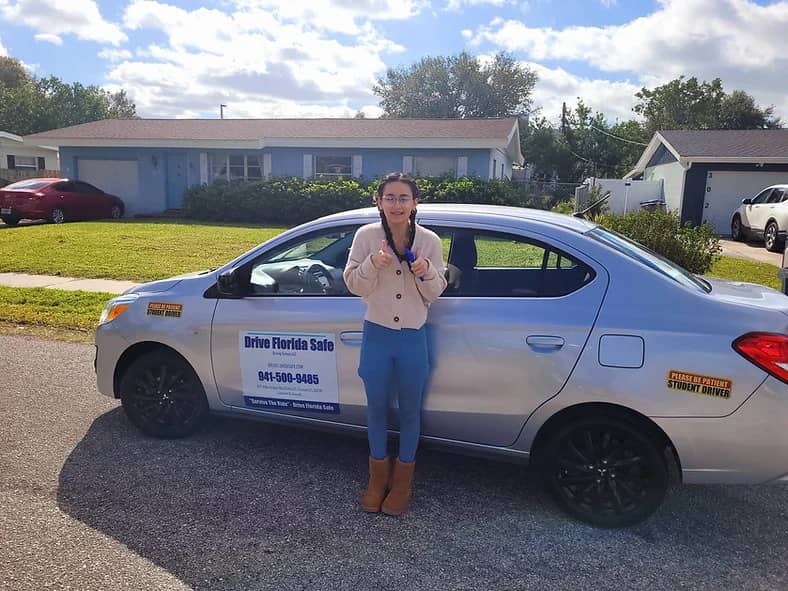
For many teenagers, the highlight of their 16th year is the prospect of obtaining a driver’s license. If you’re a 16-year-old in Florida or a parent of one, understanding the state’s driving laws is essential. Let’s navigate through the process of becoming a licensed driver in Florida’s flex traffic school, ensuring a smooth and informed journey.
Getting the Learner’s Permit
The first milestone in the journey to a driver’s license is acquiring a learner’s permit. In Florida, teenagers can apply for this permit at the age of 15. Consider talking help from flex traffic school services. However, before they can take the wheel, they must complete a Traffic Law and Substance Abuse Education (TLSAE) course, commonly known as the Florida Drug and Alcohol Course. This mandatory course educates young drivers on traffic laws and the dangers of driving under the influence of drugs and alcohol.
Once the TLSAE course is completed, the next step is to pass the written permit test, which assesses knowledge of road rules and traffic signs. Successfully passing this test earns the teen a learner’s permit, allowing them to practice driving under specific conditions.
Supervised Driving with the Learner’s Permit
With a learner’s permit, teens can start practicing their driving skills, but they cannot do so alone. Florida law requires that a licensed driver who is at least 21 years old, or a licensed sibling who is 18 years or older, accompany the permit holder in the front passenger seat. This period of supervised driving is crucial for gaining practical experience and building confidence on the road.
Advancing to the Intermediate License
At 16 years and 90 days old, teens can apply for an intermediate license, provided they meet certain criteria. They must have held their learner’s permit for at least one year without any traffic violations. Additionally, they need to complete 50 hours of driving practice, including 10 hours of nighttime driving, under the supervision of an all safety driving school. These hours are essential for honing vital driving skills in various conditions.
Privileges and Restrictions of the Intermediate License
Obtaining an intermediate license comes with new freedoms, but also certain restrictions. Teens can drive without a supervising adult, except between 11 p.m. and 6 a.m. During these hours, they must be accompanied by a licensed driver who is at least 21 years old, unless they are driving to or from work or a school-related activity. This curfew helps protect young drivers during the riskier nighttime hours.
Passenger Limitations for Safety
To enhance safety, Florida imposes restrictions on the number of passengers a young driver can have in the car. For the first three months of holding an intermediate license, a teen can only carry family members. After this period, they may transport one passenger under the age of 18 who is not a family member. These limitations aim to reduce distractions and promote safe driving practices. It is important to take master classes from a driving school in Bradenton.
The Path to a Full License
Florida’s driving laws emphasize responsible driving. To upgrade to a full, unrestricted license, a teen must be at least 18 years old and have held the intermediate license for at least one year without any traffic convictions. This requirement ensures that young drivers have sufficient experience and a track record of safe driving before gaining full driving privileges.
Safety First: Seat Belts and Cell Phones
Safety is paramount for all drivers, especially teenagers. Florida law mandates that all vehicle occupants must wear seat belts, regardless of their seating position. Additionally, teen drivers are prohibited from using any wireless communication devices, such as cell phones, while driving. These regulations are designed to minimize distractions and keep young drivers focused on the road.
Insurance Considerations for Teen Drivers
Adding a teenage driver to your auto insurance policy is not only a legal necessity but also a prudent measure to protect your family and assets. Although premiums may rise due to the higher risk associated with young drivers, many insurance companies offer discounts for good grades and completion of driver’s education courses. Exploring these options can help make insurance coverage more affordable.
Parental Involvement and Guidance
As a parent, your role is crucial in shaping your teen’s driving habits. Encourage open communication about the responsibilities of driving, the dangers of distractions, and the importance of adhering to traffic laws. By setting a positive example with your own driving behavior, you can influence your teen to adopt safe driving practices.
The Road Ahead: Safe and Responsible Driving
Embarking on the journey to becoming a licensed driver is a significant milestone for teenagers. By understanding and adhering to Florida’s driving laws for 16-year-olds, both parents and teens can navigate this exciting phase with confidence and responsibility. Remember, driving is a privilege that demands respect and careful consideration. Equip yourself with the help of driving schools in FL. Take knowledge and foster a culture of safety ensuring that this new chapter is as thrilling as it is secure.
At Drive Florida Safe Driving School, we are dedicated to assisting our novice learners to become the safest driver. We always strive to render that you or your loved one receives the most updated techniques, knowledge, and defensive driving norms.

